Blog
CHAPTER 4: Product Page Optimization
As a marketer if I could pick just one focus area it would be product page optimization. The product page is where the “moment of truth” happens.
The Magic 🪄 of Product Page Optimization
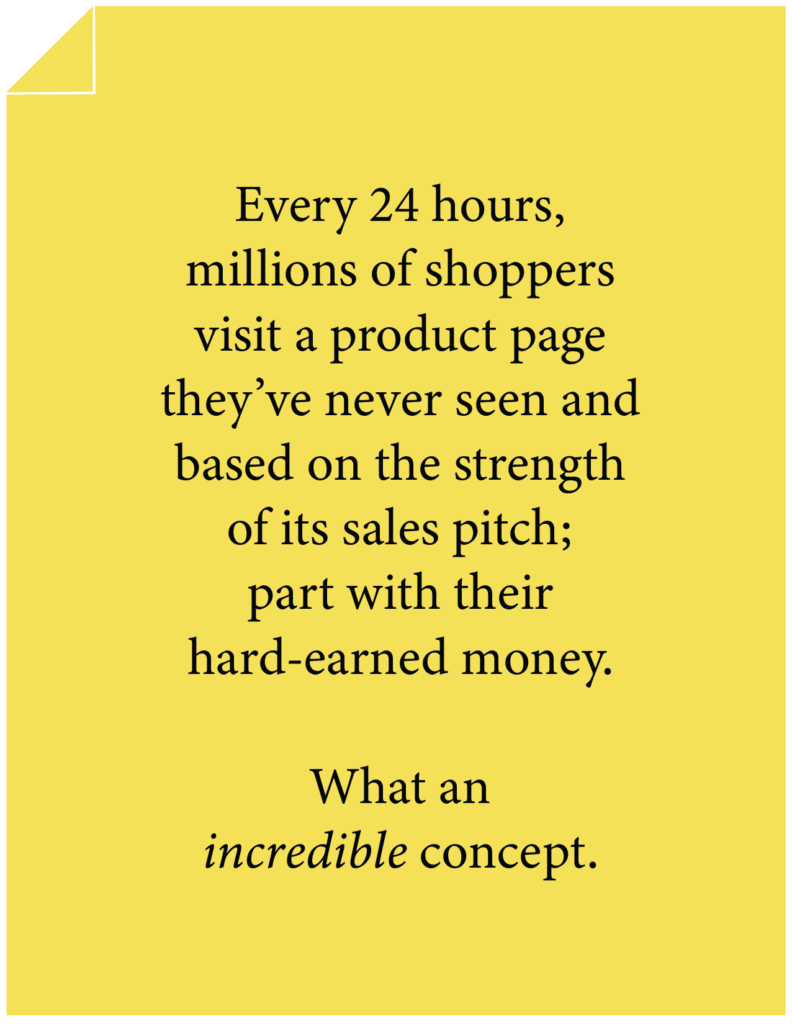
The Entrepreneur’s Mistake
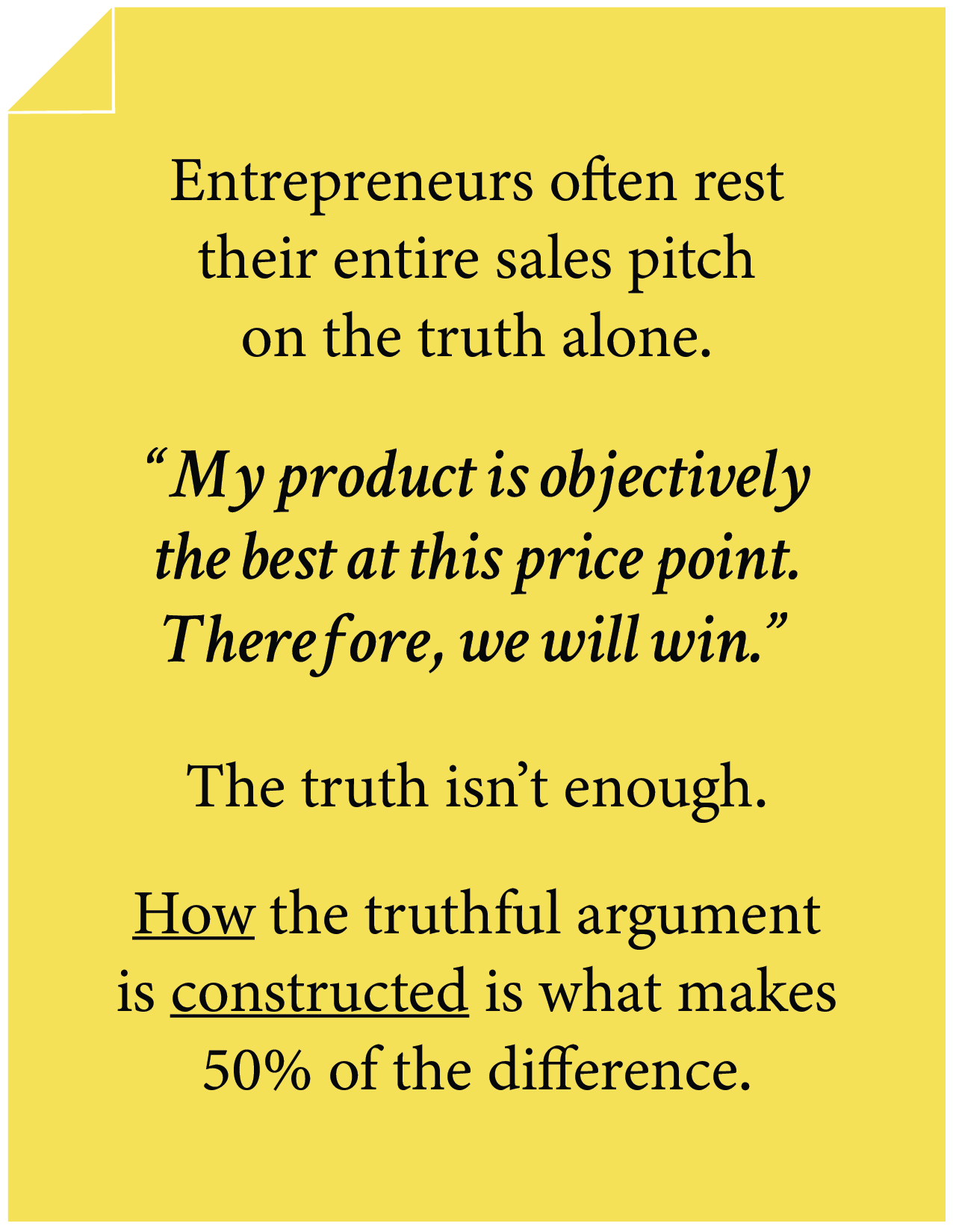
Why Product Page Matters
The product page is the last stop in the window shopping experience. Our hero knows what happens beyond the Add to Basket button:
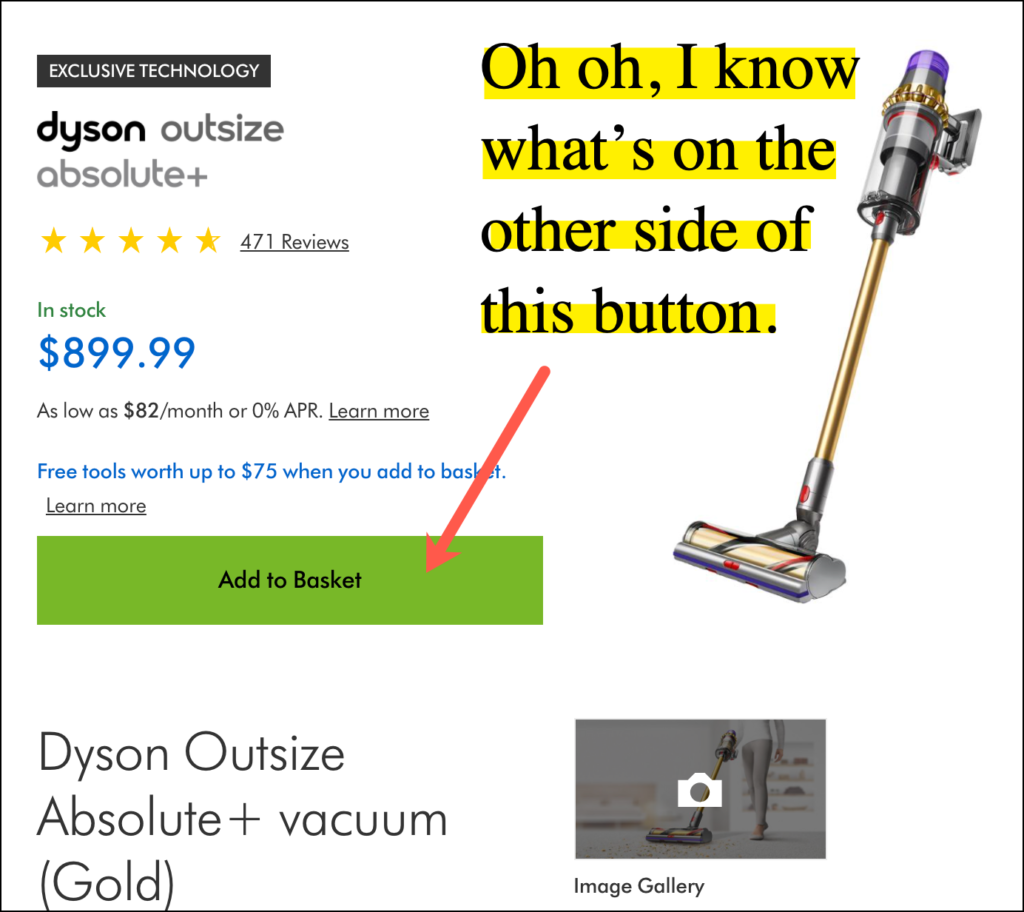
The Trouble With Product Pages
Not every element on the product page matters– one element matters the most. Read on.
5 Product Page Optimization Levers
Your product page has 5 basic building blocks:
1. Price
Reducing prices does lift conversions but is a race to the bottom. Best to leave the price untouched.
2. Product Reviews
Product reviews really matter but …
You could have 5,000 five ⭐️ reviews and if the latest four are negative your conversion rate will dip. Little you can do about that.
3. Product Photos/Videos
Expensive to do a reshoot.
4. Page Design
Page redesigns are expensive as hell and require input by a committee, which is a nightmare.
5. And (the Easiest to Screw Up)…Product Description
The last woman standing is your product description. Updating the description is 5x easier to do 🆚 a redesign. It’s also way more impactful.
Marketers make two big mistakes with product descriptions:
1: They use the Product Description page (PDP) to simply state features and benefits:
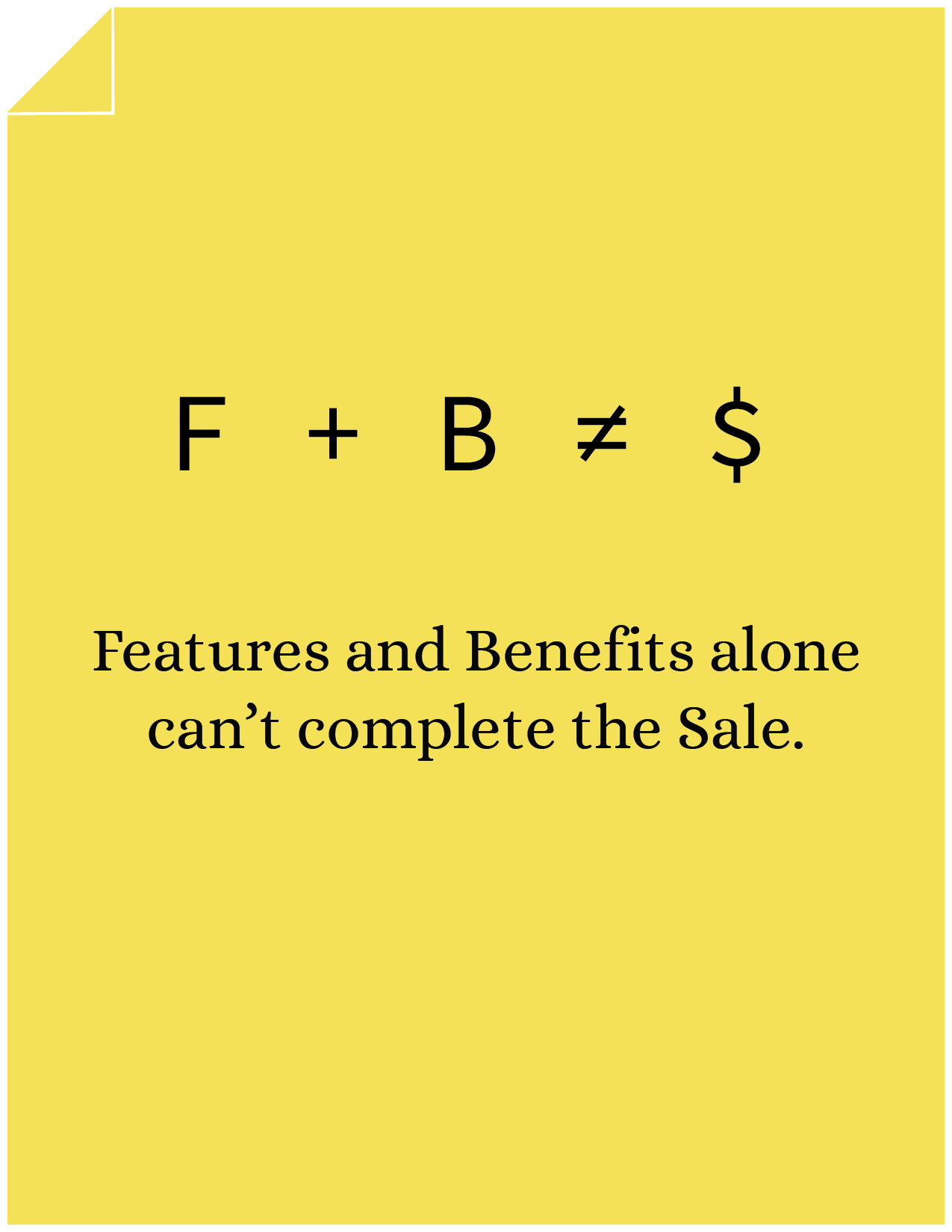
And 2: They keep the description short and to the point.
Tactics: Find Your Zone of Focus
The last section made clear that within the product page, it’s the description that really matters. But what we don’t know, yet, is if you should focus on just one product page or all product pages on your site.
The way is by looking at revenue distribution. If you have one product that’s driving around 40% of overall sales it makes sense to singularly focus on that one SKU. The 40% number is relatively arbitrary. The question you are thinking about is, “would I be super happy if I could improve sales of this sku by 10 to 20%?”
If the answer is no you may need to use strategy 2 where we focus on sitewide product page optimization. Here we’re working on the product page template versus working on any individual product page.
On Bose.com there are dozens of popular products but QuietComfort 45 is their clear bestseller so it makes to singularly focus on this one page.
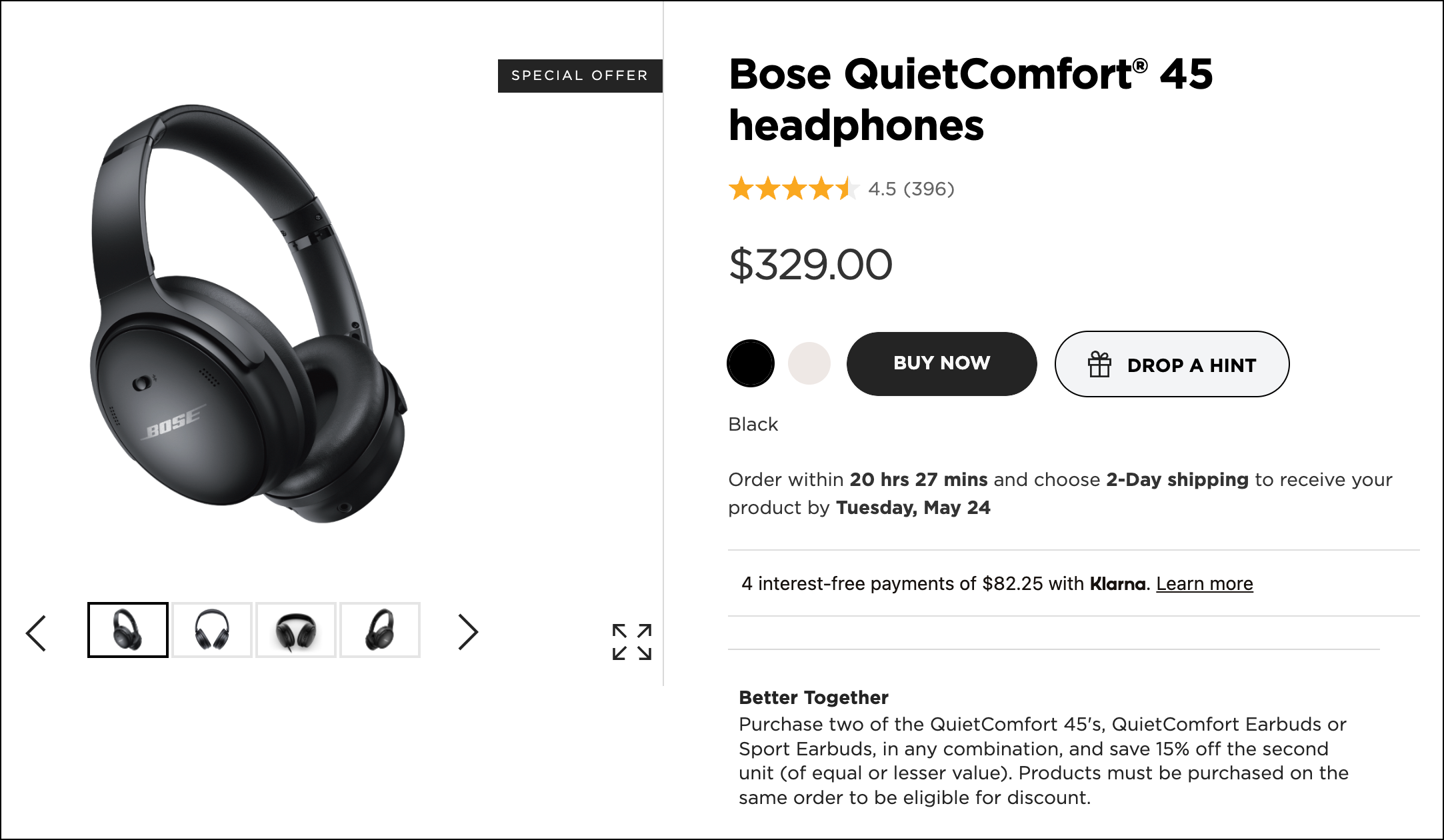
Then there’s the furniture site raymourflanigan.com. They might not have any one page that’s driving 40% of overall sales. Instead, they have a bunch of categories that are collectively impacting overall sales. Look at all these categories:

If your site is more like raymourflanigan.com you need a conversion strategy that can be applied to all your product pages. You need to think at the product page template level because it doesn’t make sense to construct a sales pitch for any one product. That strategy is covered in this important article: Maximize Conversions With “Why We Exist” Story.
Now, if you do have a standalone bestseller that drives 40% of overall sales you’ll like the next section where we’ll share tricks to boost bestseller sales by 20%.
How to Think About Your Product Page
Think of your product page as a Sales Pitch. You’ve helped a new visitor cross the unfamiliarity barrier and you’re going beyond just features and benefits. You’re about to increase conversions…
In the following sections, you’ll learn a different approach to product page optimization. But first, let’s deal with one potential issue.
Just One Thing. Yep, Just One
You’ll notice our prescription is to focus on either just one product page or one product page template. That’s it. We’re asking you to ignore the rest of the site. This makes CEOs anxious because while they appreciate the focus they want a bigger impact footprint. If that’s your concern this section is for you: Just One Thing.
There are just two ways in which we make product pages better, using stacked micro-improvements and with a long-form sales pitch. Both of these will be explained in great detail but before starting that journey we need to fully understand the scope of the opportunity. And the most efficient want to do that is with Deconstruction, which is explained next.
Getting Tactical
Deconstruction
Is the methodical process where a page is broken down into its smallest elements. It might seem counter-intuitive, but it’s remarkable what deconstruction does to the potency of the idea that emerges at the end of this process. Learn more in this article: The Magic of Deconstruction.
Selling Angles
Sales pitches are constructed on top of killer Selling Angles. The Selling Angles help the marketer to prioritize the key details that need to be focused on. It’s the basis on which our main sales pitch is built. Learn more here: Conversion Secret: Selling Angles.
Micro-improvements
At the end of the Deconstruction process, the marketer fully understands what the Control (the baseline state of the page we’re planning to improve) is all about. We understand what that page has to say about the product and how to say it. We need this knowledge before making micro-improvements.
What are micro-improvements? Micro-improvements are enhancements designed to boost sales without disturbing the underlying plumbing of the page. You can learn all about them in this post: Product Page Optimization Secret: Micro-Improvements.
Write Your Long-Form Sales Pitch
If micro-improvements are appetizers long-form sales pitch is the entree. Without a doubt, it is the beating heart of our conversion rate optimization process and it’s yours for free here: Write Your Long-Form Sales Pitch.
Feedback Beacons
Once the steps above are complete we need to add feedback beacons to the micro-improvements and the long-form sales pitch. Feedback beacons help us understand if individual elements of our Sales Pitch, especially our main Selling Angles, resonate with the shopper. These beacons are quick, interactive page elements that allow you to collect feedback from actual hot prospects as they are consuming your sales pitch.
As discussed in great detail in this post: How Using Feedback Beacons Is Basically Cheating.
Building An Effective A/B Testing Strategy
You should be proud– you’ve reached a stage very few marketers reach. You’ve gained access to ideas that will help you make the competition irrelevant. But one question remains– how do you orchestrate all that we’ve learned into a successful test outcome? Clearly, you aren’t going to get to the promised land after the first test (86% of A/B tests fail), so what you need is an A/B testing plan that directs you to the winner as quickly as possible: Building An Effective A/B Testing Strategy.
Recap
So we’ve reached the end of Chapter 4 and this also concludes our story. We started by talking about conversion rate optimization, then dove into the incredibly beautiful topic of buyer psychology, then went into conversion copywriting, and then got into product page optimization.
For the sake of readability, we have simplified a few details. But these ideas absolutely work as you can see from our 18 case studies.
You could absolutely follow this process yourself but if you don’t have the time and if your Shopify site is doing over $1.8 million in annual sales or if your bestseller is doing over $400,000 in online sales then may want to consider talking to us. The benefit of working with us is that we’ve done this process so many damn times we can do it in our sleep.
I’m happy to jump on a call.
But wait, there’s one more thing…Chapter 4.5: The Bottom Line



